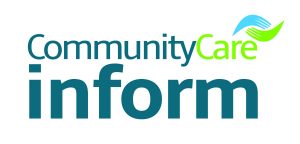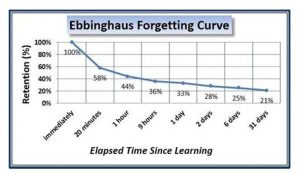
 In an age where school children are now being taught using tablets, interactive apps and cloud-based technology, it seems odd that most social work learning and development programmes have changed very little in both format and approach over the past 10, or even 20, years.
In an age where school children are now being taught using tablets, interactive apps and cloud-based technology, it seems odd that most social work learning and development programmes have changed very little in both format and approach over the past 10, or even 20, years.
Such learning is often heavily dependent on resource-intensive, face-to-face training courses and long, text-heavy documents.
This approach is not best suited to an environment where training and development budgets have been slashed and caseloads are so high that attending full-day training courses is seen as a luxury, not a necessity, for most social workers. But research also suggests it may not be the most effective way to learn.
On Community Care Inform, Community Care’s online practice guidance product for social workers, we have spent the past two and a half years exploring with our partner local authorities what supports effective social work learning cultures.
Three types of social work learners
This included conducting research with social workers in partner authorities – in one case, three days of face-to-face interviews with social workers of all grades and experience, their line managers and senior managers.
The research seemed to consistently point to the existence of three types of social workers.
The first type seeks information proactively; these practitioners do not know how to practice if they have not first extensively researched the topic, the latest research, legislation and best practice advice. This group includes most newly qualified social workers, as it is still their modus operandi after years at university.
The second type, often more experienced, admits they would like to do more research and training, because their practice would be better and it would improve their confidence, but they feel they don’t have the time to do it. Their learning is now solely ‘on-the-job’ with experience largely dictating their practice.
The third type, perhaps because of years of working in process driven systems, tends to rely on their manager to provide or direct them to information or make the final decision in cases.
Evidence from the learning sector
Alongside this work with our partners, we also looked at the extensive body of research in the learning sector on the methods that seem to be the most effective when it comes to learning and retaining information over the long-term.
 This is important because the forgetting curve, discovered by the psychologist Hermann Ebbinghaus in 1885, shows that the memory’s retention of new information falls rapidly in the hours and days after learning it – unless that information builds on what you already know and reinforces previous learning.
This is important because the forgetting curve, discovered by the psychologist Hermann Ebbinghaus in 1885, shows that the memory’s retention of new information falls rapidly in the hours and days after learning it – unless that information builds on what you already know and reinforces previous learning.
Mosher and Gottfredson’s work identified five moments when people learn (2010):
- learning for the first time
- learning more (ie building on knowledge)
- applying learning
- when things go wrong (ie problem solving)
- when things change
They argue that while most workplace learning is focused on the first two moments of learning need, in fact it is during the last three moments when learning is most effective and retained for longer.
A wide-ranging literature review in the US (Dunlosky.J et al 2013) looked at 10 different methods of learning among university students to try and find the most effective for long-term retention of information.
They found the two most effective methods of study for all types of learners were:
- regular testing (including practice testing) that contained some kind of feedback
- learning that was spaced out over longer periods of time. For example, one particular study showed students who either read or were taught Spanish words with a month between the sessions showed better long-term retention of the information compared to those who did the learning over six days, back-to-back.
Another interesting study within this review found that students themselves often over-rated their own knowledge retention after intensive learning sessions, indicating our perceptions of how much we know can be inaccurate.
More recently, Norwegian research (FagerstrØm et al, 2017) looked at the impact of micro-learning (delivering learning in small chunks at the learner’s convenience) and gamification (using techniques from games, such as point scoring and competition) on the education of health workers. It found those who used microlearning, in the form of a mobile app with flip cards, increased their knowledge on key legislation compared to those who had normal, face-to-face training sessions.
Armed with these findings we knew that if we wanted the high-quality information on Community Care Inform to be retained and applied in social work practice, it was essential we experiment with more interactive, structured learning opportunities.
Quiz learning
We began creating a series of online quizzes for social workers on key topics. These were focused on information which can often go out of date quickly, such as legislation, research and case law.
The quizzes use a bank of questions, but no more than 10 are delivered at any one time, meaning the quiz takes, on average, about five minutes to complete and can be taken repeatedly. Those getting more than 70% correct are eligible for a certificate.
We also started working with partner councils to use the quizzes as part of their systematic learning programmes. A chosen topic of learning would be kicked off with all social workers asked to complete the relevant quiz. Data from this quiz was used to determine common knowledge gaps and to structure the internal learning sessions over the next one to three months. Social workers were then asked to complete the quiz again at the end of the topic focus.
Community Care Inform then did qualitative interviews with some of the social workers as part of our evaluation.
Proactive learning
While it is difficult to gauge long-term retention of information without more scientific research methodologies, the findings do suggest that, across children’s and adult social care, the ‘quiz’ or ‘test’ format seemed to be effective at creating a more proactive learner.
Page views of all Community Care Inform content increased by between 300-420% during these topic focused months. While usage then declined, interestingly the usage of content related to that topic remained elevated compared to the number of page views before the focus on the topic.
The scores on quizzes consistently increased between first and last attempts. While only asked to complete the quiz twice, the majority of social workers and managers took the quiz repeatedly, determined to get 70-100%.
The findings from the qualitative interviews found this was usually because many were surprised, and often horrified, at the questions they got wrong on their first attempt at the quiz.
For example, one social worker told us:
“I actually thought I was pretty good on this topic until I got a terrible score on the quiz. So, I went away and did some reading and then took the quiz again and did much better. I feel more confident again in these kind of cases, but it’s a classic case of you don’t know what you don’t know.”
Others reported the main benefit was doing the quiz as a group because it prompted spontaneous discussion and debate amongst teams.
Many confessed they couldn’t remember a lot of the information a month after taking the final quiz but what did seem to remain was an acute awareness of the possibility of knowledge gaps.
One said: “I think if I had a case on this topic now I would make sure I did this quiz again or do some reading before I start making decisions.”
Measures of success
Measuring the impact of learning on outcomes for service users remains incredibly difficult in this sector. But even if we measure success only in terms of the increased confidence of social workers, the reduction of risk compared to when social workers operate on experience alone, and the alleviation of the pressure on frontline managers, this learning approach would, I think, still be a positive step forward.
In other surveys we’ve done online learning is often rated quite low by both social workers and their managers as an effective method of learning. Certainly, many e-learning programmes have failed to live up to the potential many predicted five to 10 years ago.
But now, following this work, I would argue this is just because we haven’t experimented enough with elements such as microlearning, nor perhaps understood the power of embedding these into the workflow of a social worker and a social work department.
For more information about Community Care Inform’s supported learning programme please contact 020 3915 9444 or ccinformhelpdesk@markallengroup.com. For more information about the research please contact mithran.samuel@markallengroup.com or judy.cooper@markallengroup.com
Judy Cooper is the former editor of Community Care and Community Care Inform and is now a consultant on digital content strategies.
References
Ebbinghaus Forgetting Curve. Psychestudy.com
Murre JMJ, Dros J (2015) Replication and Analysis of Ebbinghaus’ Forgetting Curve. PLoS ONE 10(7): e0120644. https://doi.org/10.1371/journal.pone.0120644
Gottfredson, C., & Mosher, B. (2010). Innovative performance support: Strategies and practices for learning in the workflow. New York: McGraw-Hill.
Conrad Gottfredson on meeting moments of learning need (2017). Learning Solutions magazine
Gottfredson, C. The Three Beacons of Workplace Learning (no date). 5 moments of need website.
Dunlosky, J, Rawson, Katherine et al (2013); Improving Students’ Learning with Effective Learning Techniques: Promising Directions From Cognitive and Educational Psychology. Psychological Science in the Public Interest 14(1) 4 –58
Asle Fagerstrøm, Marit Gulliksen, Tor-Morten Grønli (2017). Microlearning in Educating Healthcare Professionals. Proceedings of The 2017 International Conference on Advanced Technologies Enhancing Education (ICAT2E 2017)


 Assistive technology and dementia: practice tips
Assistive technology and dementia: practice tips  A trauma-informed approach to social work: practice tips
A trauma-informed approach to social work: practice tips 




 Find out how to develop your emotional resilience with our free downloadable guide
Find out how to develop your emotional resilience with our free downloadable guide  Develop your social work career with Community Care’s Careers and Training Guide
Develop your social work career with Community Care’s Careers and Training Guide  ‘Dear Sajid Javid: please end the inappropriate detention of autistic people and those with learning disabilities’
‘Dear Sajid Javid: please end the inappropriate detention of autistic people and those with learning disabilities’ Ofsted calls for power to scrutinise children’s home groups
Ofsted calls for power to scrutinise children’s home groups Seven in eight commissioners paying below ‘minimum rate for home care’
Seven in eight commissioners paying below ‘minimum rate for home care’
 Facebook
Facebook X
X LinkedIn
LinkedIn Instagram
Instagram
Comments are closed.